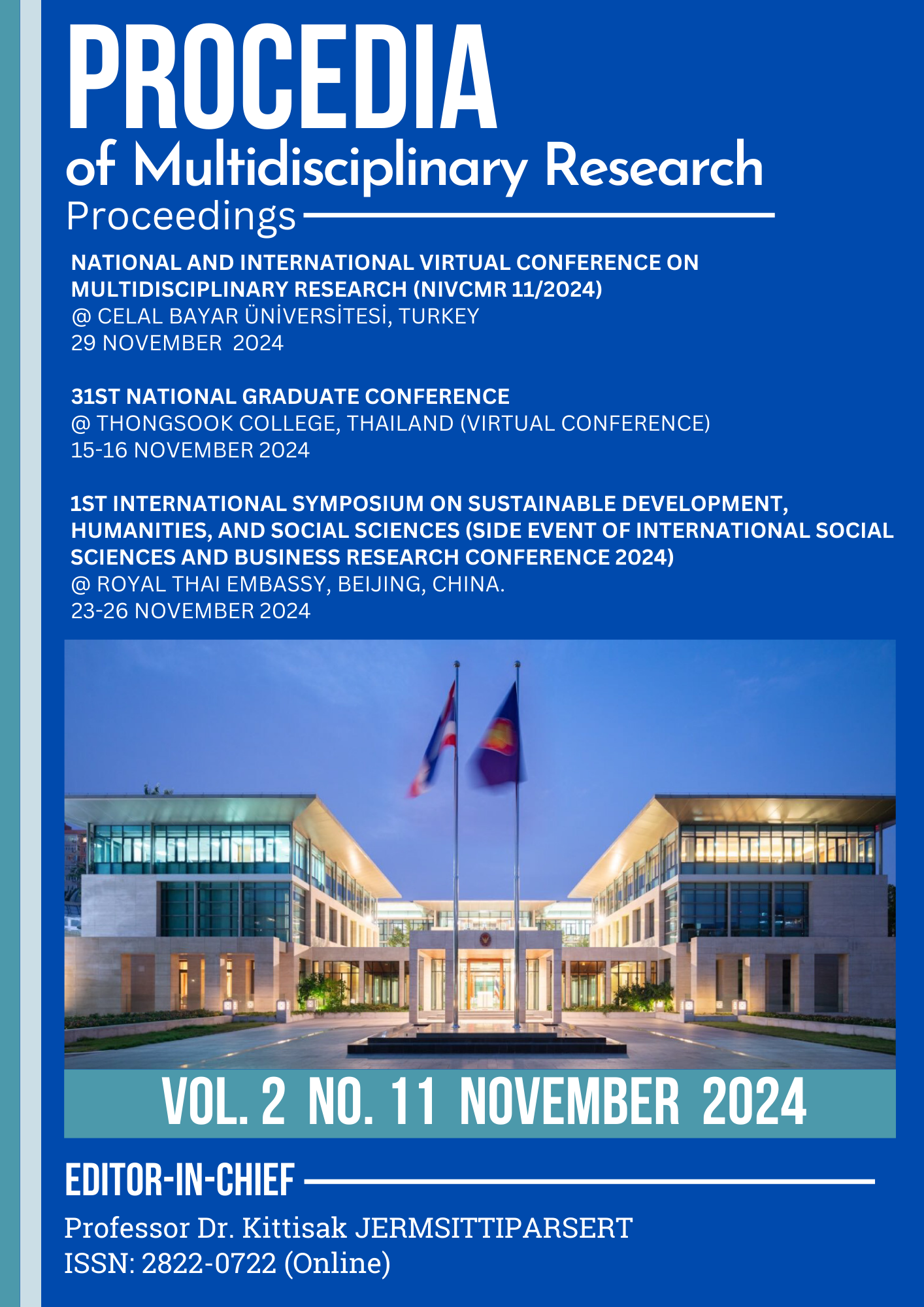FACTORS AFFECTING PASSWORD CREATION OF PERSONNEL ACCORDING TO CYBER SECURITY PRACTICES: A CASE STUDY OF BANGKOK HOSPITAL PHUKET
Abstract
This study explores the factors affecting password creation among personnel at Bangkok Hospital Phuket, focusing on adherence to cyber security practices. The research applies the Technology Acceptance Model (TAM) to examine key variables such as perceived ease of use (PEOU), perceived usefulness (PU), attitudes (ATU), behavioral intentions (ITU), and actual usage (USE) of secure passwords. The methodology includes the use of descriptive statistics and confirmatory factor analysis (CFA) to assess the model fit, using fit indices such as RMSEA (0.000), SRMR (0.011), and CFI (1.000), which indicate a near-perfect model fit. The results reveal that PEOU has a significant negative influence on PU (Estimate = -0.4831, p < 0.001), while PU strongly positively impacts ATU (Estimate = 0.8752, p < 0.001). Moreover, behavioral intentions significantly predict actual password usage (Estimate = 0.7681, p < 0.001), emphasizing the importance of intention in driving secure behavior. Additionally, the role of perceived skills (PS) was examined, with findings showing that PS significantly impacts PU (Estimate = 0.7969, p < 0.001) and ITU (Estimate = 0.2742, p < 0.001). These findings contribute to developing comprehensive password security guidelines, suggesting that enhancing perceived skills and the usefulness of secure passwords could lead to better cyber security practices. This research provides actionable insights for designing effective training programs aimed at fostering secure password behavior in healthcare environments, a critical area for protecting sensitive patient data.
Downloads
Published
Issue
Section
License

This work is licensed under a Creative Commons Attribution-NonCommercial-NoDerivatives 4.0 International License.







.png)


